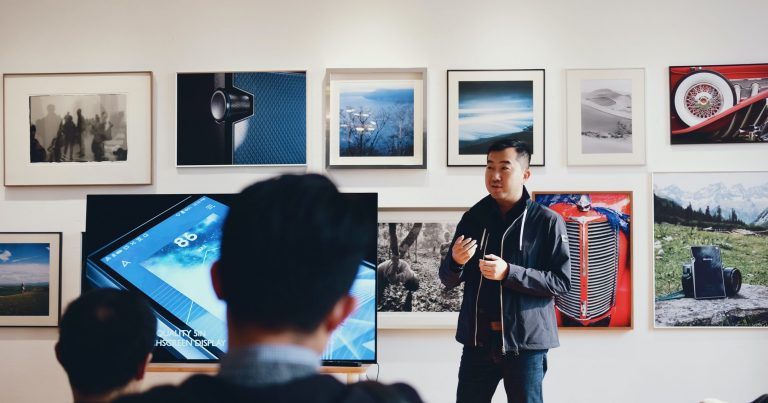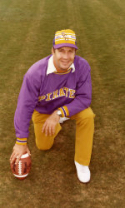 If I asked you right now to name the most important and impactful person/mentor in your life I bet you could answer that question rather quickly. Why, because you have probably been asked or you have thought about that question before. Maybe many times before. On the other hand, what if I asked you to name the most influential mentor in your life who never knew they were influential to you. You may have to think about that a moment. This individual you just identified is one type of indirect mentor. Let’s learn how to use indirect mentors for your personal development.
Indirect mentors are exactly what they sound like, people who offer incredible insights, ideas, and examples indirectly or informally. How? You consume their content. You watch and study their every move and decision. An indirect mentor can be someone of notoriety or not. Accomplished in a field that you want to study. Maybe it’s a podcast you listen to or a youtube channel you watch. Perhaps it’s someone in a work environment or an athletic coach. No matter the distribution channel, in today’s world tremendous value and guidance are available everywhere. Moreover, they can be easily accessed and consumed.
If I asked you right now to name the most important and impactful person/mentor in your life I bet you could answer that question rather quickly. Why, because you have probably been asked or you have thought about that question before. Maybe many times before. On the other hand, what if I asked you to name the most influential mentor in your life who never knew they were influential to you. You may have to think about that a moment. This individual you just identified is one type of indirect mentor. Let’s learn how to use indirect mentors for your personal development.
Indirect mentors are exactly what they sound like, people who offer incredible insights, ideas, and examples indirectly or informally. How? You consume their content. You watch and study their every move and decision. An indirect mentor can be someone of notoriety or not. Accomplished in a field that you want to study. Maybe it’s a podcast you listen to or a youtube channel you watch. Perhaps it’s someone in a work environment or an athletic coach. No matter the distribution channel, in today’s world tremendous value and guidance are available everywhere. Moreover, they can be easily accessed and consumed.
Why It’s Important
To start, let’s quickly look at a traditional mentoring model and why you would seek a mentor? Data from studies focused on the benefits of mentoring are undeniably positive. Mentoring relationships create better outcomes for the mentor, the mentee, and therefore the company or institution. Examining studies focused on the impact of mentoring, the data consistently supports delivering significant value and benefit. In fact, both the mentor and mentee acknowledge deriving impactful benefits from the relationship. One such recent study of 3,000 employed Americans conducted by Olivet Nazarene University during 2019 yielded extremely interesting results regarding traditional mentoring models. Some of the highlights from the study were:- 56% of people surveyed have had a mentor at some point.
- 37% currently have one.
- 76% indicated having a mentor as either important or very important.
- 3.3 years was the average length of time the relationship lasted.
- 61% of the relationships naturally occurred.
- 14% of people initiated the relationship upfront.
Why People Are Hesitant
Why is that? I had a hunch, so recently I put my hunch to the test and asked thirty professionals the same two questions (importance and did you have one). My results are in no way scientific, they were random. However, results mirrored the Nazarene study. Eighty percent of my sample pool thought mentorship was a critical or important factor in someone’s success. Yet, only seven (23.3%) had ever asked or initiated a mentor relationship. Seeking to understand WHY, I asked this follow-up question: Recognizing the benefits and importance of a mentor, what has kept you from reaching out (asking someone) to mentor you? The two dominant roadblocks: Unsure of how-to initiate the request and fear of being rejected. These can be big roadblocks for people to overcome and fortunately, an indirect mentor can solve that problem. As a personal case in point, many years ago I luckily pursued mentoring via an indirect model (even though I had no idea I was doing it at the time). It was purely accidental how I went about it, however, doing what I did would yield a significant impact for years to come.Personal Indirect Mentor
 This person who has impacted my professional life the most was Pat Dye, my indirect mentor. I had the great privilege to play football for Coach Dye at East Carolina University. In order to provide a little context, Coach Dye was a towering figure in eastern North Carolina. He had elevated ECU’s program to a point where they could compete and win against Atlantic Coast Conference teams from our state. This had never been done before. His leadership instilled pride in his team, students on campus, alumni, and in people that would never meet him, they would only know of him and what he represented through television or newspapers.
As a collegiate player, he earned All-American honors at the University of Georgia as an offensive lineman. Once his playing days ended he embarked on his coaching career where he became an assistant for Bear Bryant at Alabama for seven years. He possessed tremendous pedigree as both a player and coach and was mentored by Coach Bryant, arguably the greatest college coach of all time.
At this point in my life, I was sure coaching college football was in my future. So I set out to take full advantage of the opportunity before me and study everything I could about Coach Dye. I was about to get an advanced degree in leadership!
The first thing I remember noticing about Coach Dye was his presence as a leader. His communication skills were powerful. He knew how to effectively communicate with all stakeholders in the program creating alignment and purpose. He was the first person I had been exposed to that was able to create aspiration and inspiration simultaneously.
This person who has impacted my professional life the most was Pat Dye, my indirect mentor. I had the great privilege to play football for Coach Dye at East Carolina University. In order to provide a little context, Coach Dye was a towering figure in eastern North Carolina. He had elevated ECU’s program to a point where they could compete and win against Atlantic Coast Conference teams from our state. This had never been done before. His leadership instilled pride in his team, students on campus, alumni, and in people that would never meet him, they would only know of him and what he represented through television or newspapers.
As a collegiate player, he earned All-American honors at the University of Georgia as an offensive lineman. Once his playing days ended he embarked on his coaching career where he became an assistant for Bear Bryant at Alabama for seven years. He possessed tremendous pedigree as both a player and coach and was mentored by Coach Bryant, arguably the greatest college coach of all time.
At this point in my life, I was sure coaching college football was in my future. So I set out to take full advantage of the opportunity before me and study everything I could about Coach Dye. I was about to get an advanced degree in leadership!
The first thing I remember noticing about Coach Dye was his presence as a leader. His communication skills were powerful. He knew how to effectively communicate with all stakeholders in the program creating alignment and purpose. He was the first person I had been exposed to that was able to create aspiration and inspiration simultaneously.
Daily Ritual
So, leaving nothing to memory I bought a really good notebook and started notating daily (today you would call it journaling) this unique educational experience. At the end of every day, I would record the following: content from our team meeting; what was communicated, how it was communicated, and what was the main point of his message. On the field, I paid attention to the coaches and how they were teaching their coaching points, what points were they stressing, and what techniques did they use for teaching physical and mental skills. Every day I learned something new dealing with teaching tangible or intangible skills and principles. I did this every day for the entire season. In no time, I began to understand the “why” of what we were being taught. To this day, I still remember noticing how all of a sudden things started clicking. Exposure to great minds and teaching skills penetrated my mind, habits, and way of thinking. Even more amazing to me, how the lessons and influence stuck with me. A case in point, almost ten years ago, a former teammate of mine and I worked for the same company. Knowing that I would get candid feedback from him following my meetings, I asked Andre to critique my presentations through the lens of what we had learned with Coach Dye. I received strong and clear feedback that enabled me to make adjustments where needed and improve. The feedback was invaluable and helped me consistently get better. When I nailed my presentation, Andre would send me a text confirming my hopes that I had delivered the way I intended – “That was some serious PD.” In our mind, that was the bar to strive for and reach!Indirect Mentor Process
If you are looking to get better and don’t feel you have access to a direct mentor, commit to finding an indirect mentor. This process is simple but extremely effective.- Know your Why – Why are you committed to learning and improving? Why does it matter? Why will your life, career, or relationship be impacted?
- Target – Who is the person best suited to study and learn from?
- Study daily – Learning from an indirect mentor is no different than absorbing any other knowledge or skill. Consistent repetition ingrains the newly found skills or knowledge.
- Put into Practice: Execute and put into practice.
- Teach: Start passing along your newfound skillset by teaching others.
- Gratitude: A simple gesture of appreciation is good for you and the person you studied.
Butch‘s Take
- Being mentored is one of the fastest paths to developing and growing your knowledge or a new skillset.
- Be aware of who has impacted you and be aware that at some point someone will target you as a direct or indirect mentor.
- Never forget to be grateful and express your gratitude for what someone has given to you.

Recent Comments